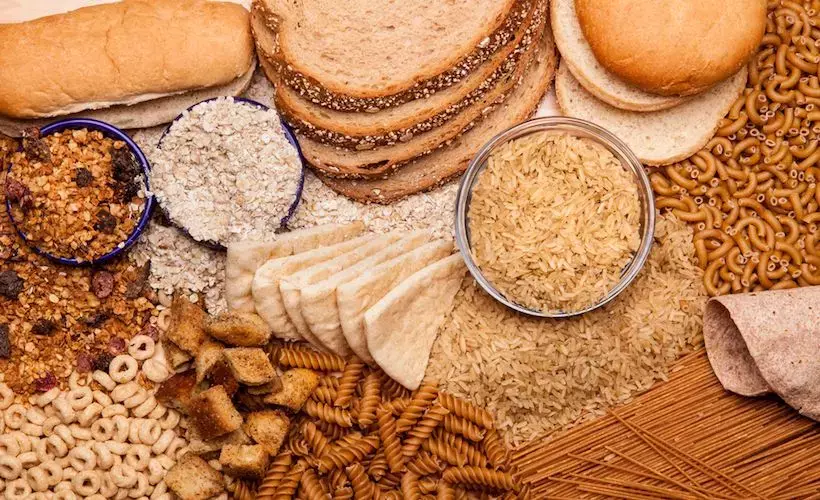- Home
- Medical news & Guidelines
- Anesthesiology
- Cardiology and CTVS
- Critical Care
- Dentistry
- Dermatology
- Diabetes and Endocrinology
- ENT
- Gastroenterology
- Medicine
- Nephrology
- Neurology
- Obstretics-Gynaecology
- Oncology
- Ophthalmology
- Orthopaedics
- Pediatrics-Neonatology
- Psychiatry
- Pulmonology
- Radiology
- Surgery
- Urology
- Laboratory Medicine
- Diet
- Nursing
- Paramedical
- Physiotherapy
- Health news
- Fact Check
- Bone Health Fact Check
- Brain Health Fact Check
- Cancer Related Fact Check
- Child Care Fact Check
- Dental and oral health fact check
- Diabetes and metabolic health fact check
- Diet and Nutrition Fact Check
- Eye and ENT Care Fact Check
- Fitness fact check
- Gut health fact check
- Heart health fact check
- Kidney health fact check
- Medical education fact check
- Men's health fact check
- Respiratory fact check
- Skin and hair care fact check
- Vaccine and Immunization fact check
- Women's health fact check
- AYUSH
- State News
- Andaman and Nicobar Islands
- Andhra Pradesh
- Arunachal Pradesh
- Assam
- Bihar
- Chandigarh
- Chattisgarh
- Dadra and Nagar Haveli
- Daman and Diu
- Delhi
- Goa
- Gujarat
- Haryana
- Himachal Pradesh
- Jammu & Kashmir
- Jharkhand
- Karnataka
- Kerala
- Ladakh
- Lakshadweep
- Madhya Pradesh
- Maharashtra
- Manipur
- Meghalaya
- Mizoram
- Nagaland
- Odisha
- Puducherry
- Punjab
- Rajasthan
- Sikkim
- Tamil Nadu
- Telangana
- Tripura
- Uttar Pradesh
- Uttrakhand
- West Bengal
- Medical Education
- Industry
Increased whole grain consumption reduces diabetes incidence and associated economic burden: Study

Increased consumption of whole grain foods could significantly reduce the incidence of type 2 diabetes and the costs associated with its treatment in Finland, according to a recent study by the University of Eastern Finland and the Finnish Institute for Health and Welfare. The findings were published in Nutrients.
"Our study shows that already one serving of full grains as part of the daily diet reduces the incidence of type 2 diabetes at the population level and, consequently, the direct diabetes-related costs, when compared to people who do not eat whole grain foods on a daily basis. Over the next ten years, society's potential to achieve cost savings would be from 300 million (-3.3%) to almost one billion (-12.2%) euros in current value, depending on the presumed proportion of whole grain foods in the daily diet. On the level of individuals, this means more healthier years," says Professor Janne Martikainen from the University of Eastern Finland.
Type 2 diabetes is one of the fastest-growing chronic diseases both in Finland and globally. Healthy nutrition that supports weight management is key to preventing type 2 diabetes. The association of daily consumption of whole grain foods with a lower risk of diabetes has been demonstrated in numerous studies.
"According to nutrition recommendations, at least 3–6 servings of whole grain foods should be eaten daily, depending on an individual's energy requirement. One third of Finns do not eat even one dose of whole grains on a daily basis, and two thirds have a too low fibre intake," Research Manager Jaana Lindström from the Finnish Institute for Health and Welfare says.
The now published study utilised findings from, e.g., national follow-up studies, such as the FinHealth Study, to assess the health and economic effects of increased consumption of whole grain foods on the prevention of type 2 diabetes.
"By combining population-level data on the incidence of type 2 diabetes and the costs of its treatment, as well as published evidence on the effects of how consumption of whole grain foods reduces the incidence of type 2 diabetes, we were able to assess the potential health and economic benefits from both social and individual viewpoints," Martikainen says.
https://www.mdpi.com/2072-6643/13/10/3583
Hina Zahid Joined Medical Dialogue in 2017 with a passion to work as a Reporter. She coordinates with various national and international journals and association and covers all the stories related to Medical guidelines, Medical Journals, rare medical surgeries as well as all the updates in the medical field. Email: editorial@medicaldialogues.in. Contact no. 011-43720751
Dr Kamal Kant Kohli-MBBS, DTCD- a chest specialist with more than 30 years of practice and a flair for writing clinical articles, Dr Kamal Kant Kohli joined Medical Dialogues as a Chief Editor of Medical News. Besides writing articles, as an editor, he proofreads and verifies all the medical content published on Medical Dialogues including those coming from journals, studies,medical conferences,guidelines etc. Email: drkohli@medicaldialogues.in. Contact no. 011-43720751


